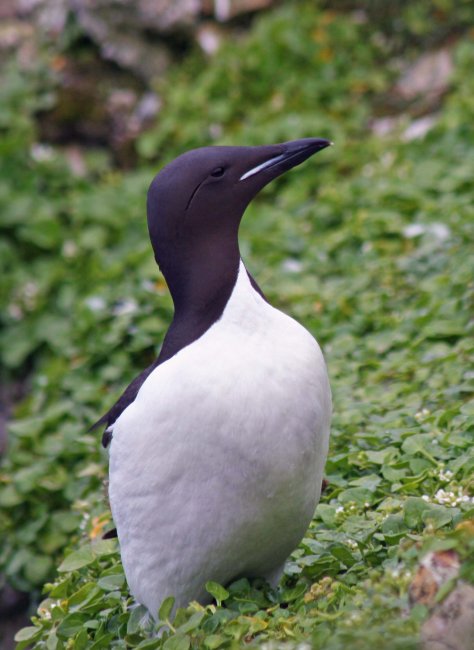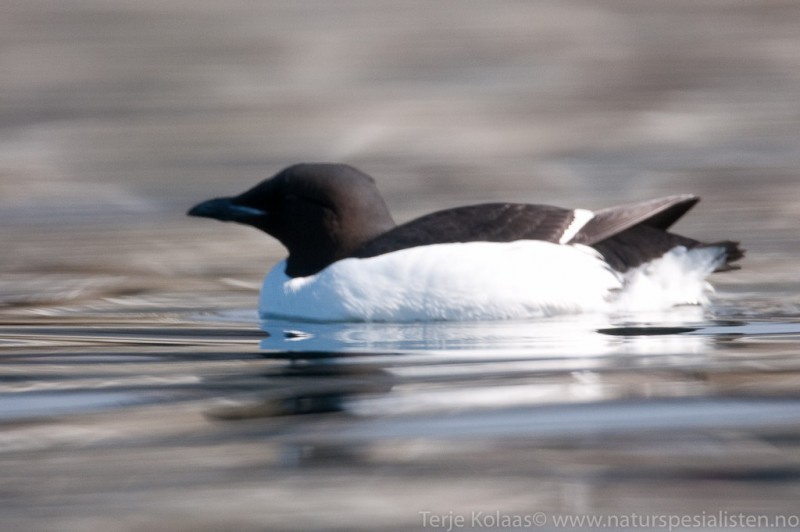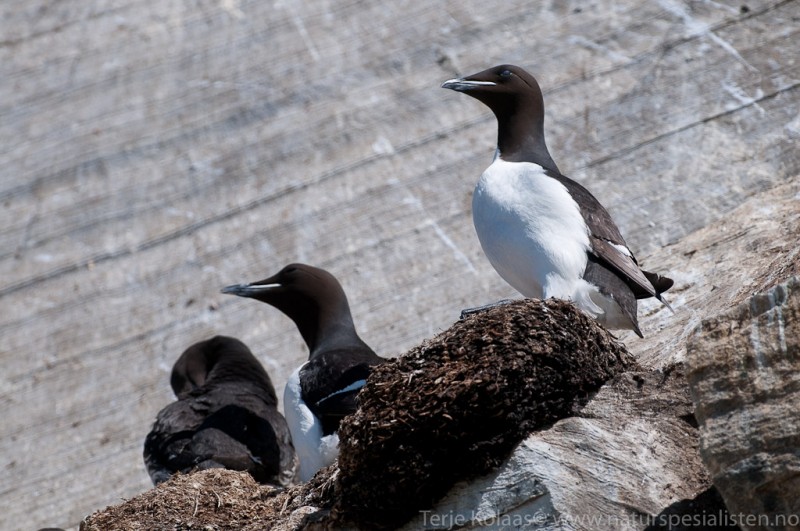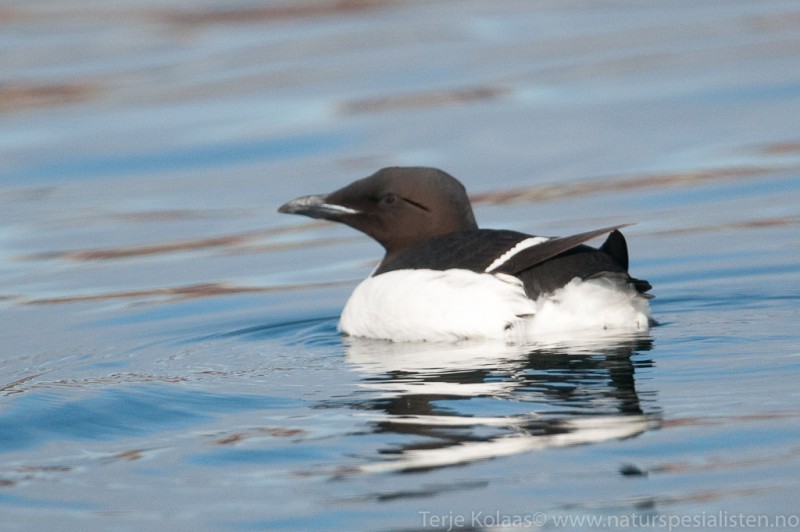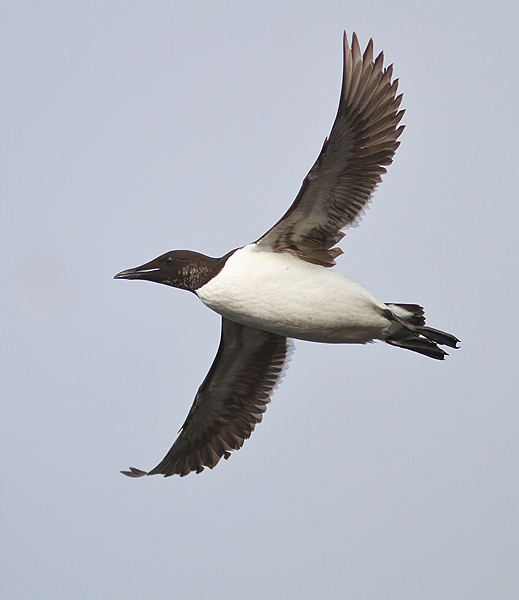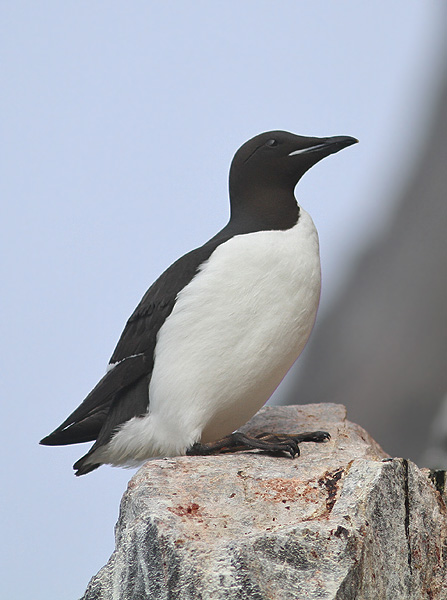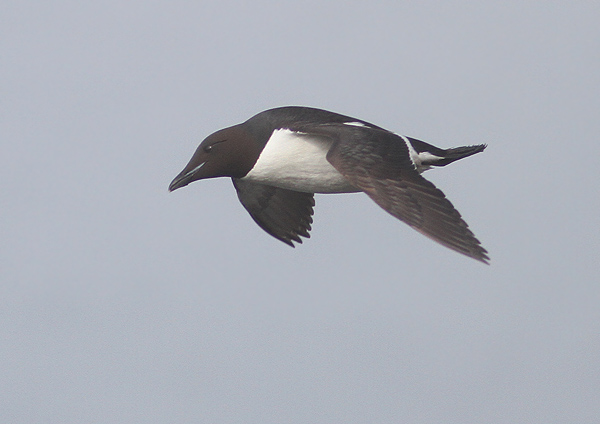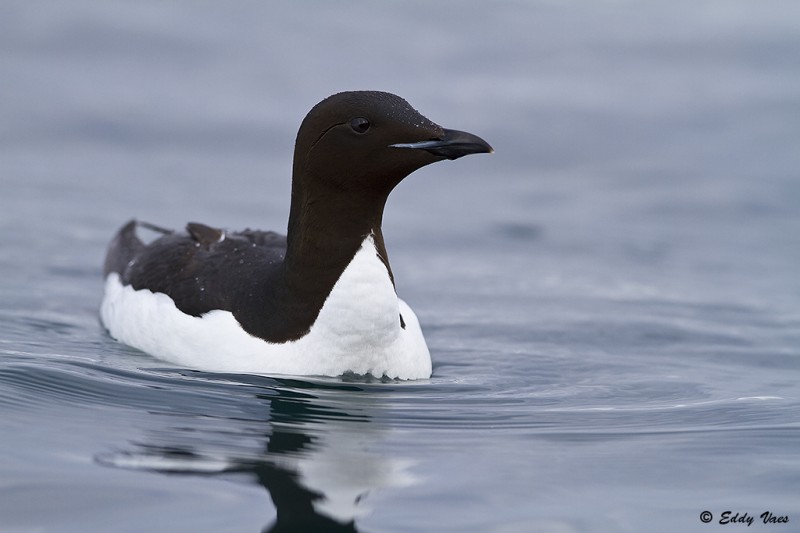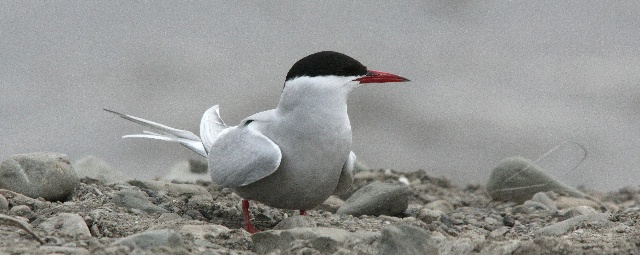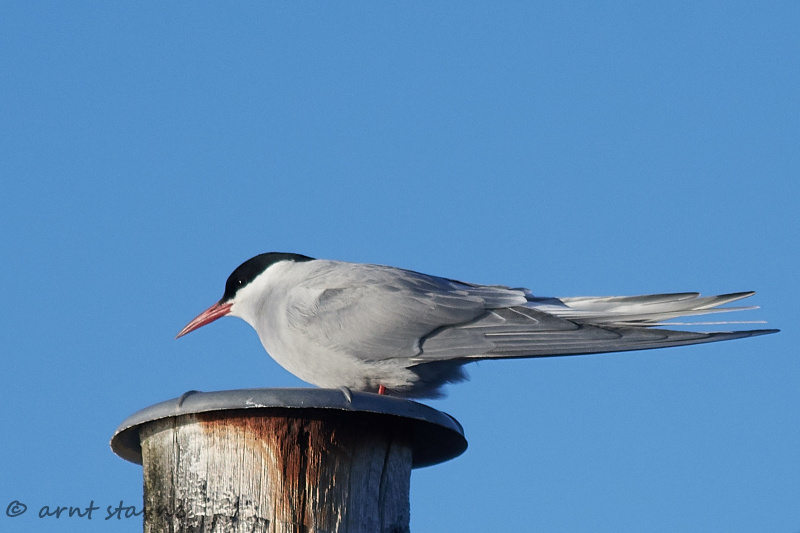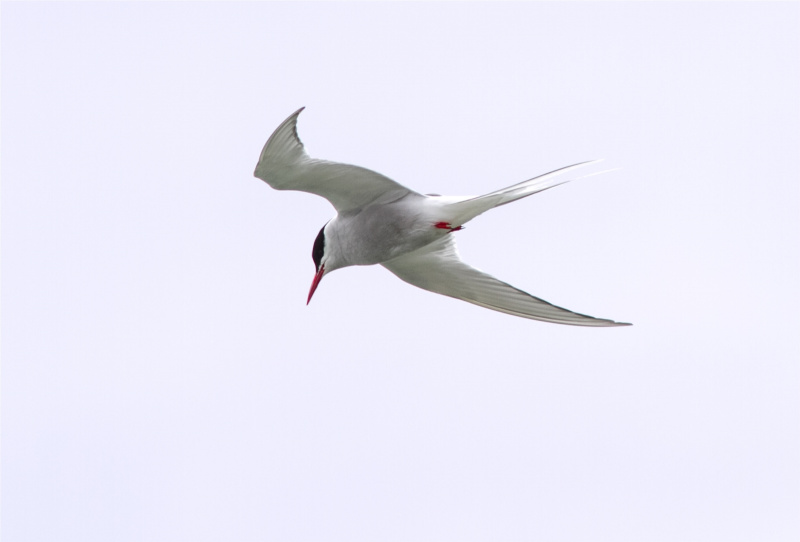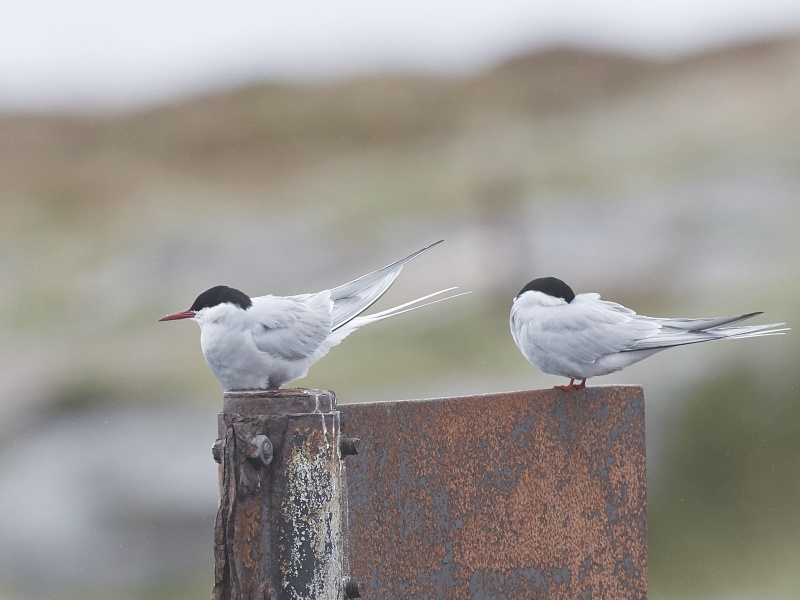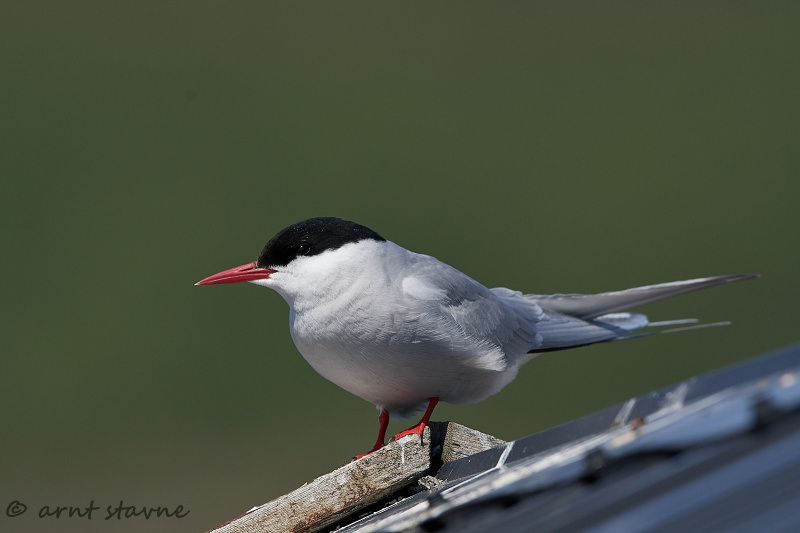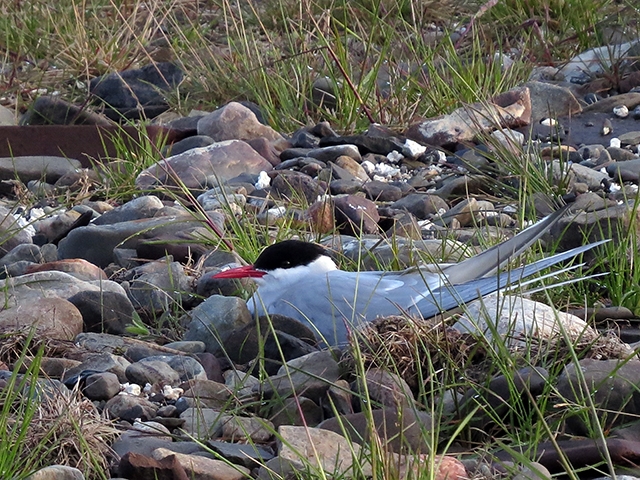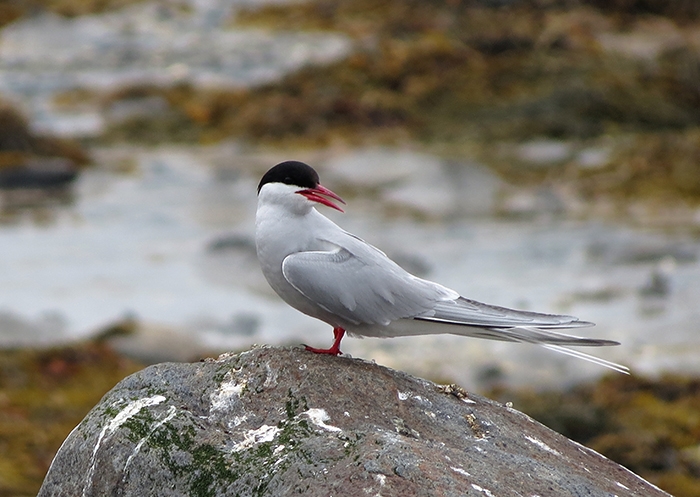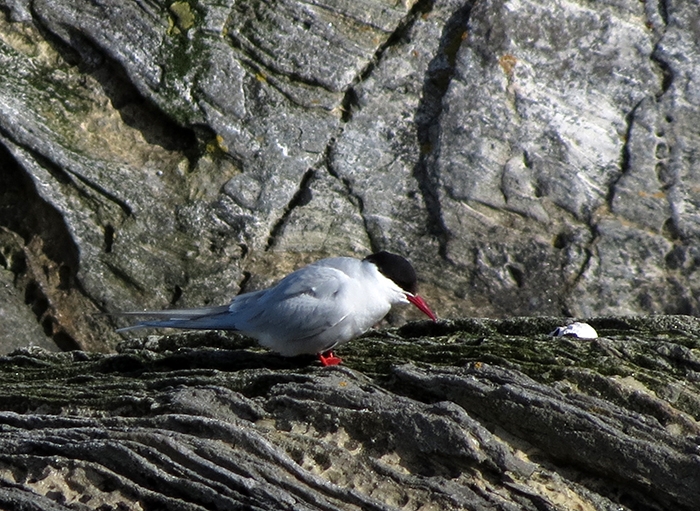Brünnich's Guillemot (Uria lomvia)
Arctic Tern (Sterna paradisaea)
Hard to distinguish from Guillemot, especially at a distance. Bill heavier, shorter, less pointed and with lateral white stripe at base (not obvious at a distance). Flanks lacks Guillemot's streaking, and armpits are white. Upperparts blacker, without brownish tones. Tail shorter than razorbill, with protruding feet in flight. Only lower cheeks white in winter, with the area behind the eye being black (white in both Guillemot and Razorbill). Pointed (not rounded) white wedge protruding from front of chest to lower throat. Neck, head and bill, heavier than in Guillemot, but more slender than Razorbill. Bill often tilted downwards in flight.
Sound:Coarse and deep voice, like a cross between Guillemot and Razorbill. Coarser than Guillemot but with the same laughing ending, but slower.
Contact call:
Distribution:
Wikipedia: map (se also Xeno-canto below)
Ecology:Birdlife ecology
Links:
Observation.org Latest observations
Image search Flickr NB! May give other species
CCCC-sounds:,www.xeno-canto.org,Andrew Spencer,http://creativecommons.org/licenses/by-nc-sa/3.0/
Differs from Common Tern in shorter head, and blood-red bill. Legs shorter, but tail streamers longer (extends well past wings in sitting birds). Underparts of primaries with sharply bordered dark trailing edge (diffusely bordered in Common Tern). Both primaries and secondaries transparent to sunlight. Crest less apparent than in Common Tern and underside greyer. Cheeks white just below the black cap, often in contrast to grey lower cheeks. Juveniles lacks buff coloured back.
Sound:Similar to Common Tern but higher pitched. Typical call a series of high pitched "tip-tip-tip", and longer, ringing, high-pitched "kriiiiii" calls. The drawn out "kree-aaahh" call falls less distinctly in pitch than Common Tern.
Calls:
Distribution:
Wikipedia: map (se also Xeno-canto below)
Ecology:Birdlife ecology
Links:
Observation.org Latest observations
Image search Flickr NB! May give other species
CC
 English
English Albanian
Albanian
 Armenian
Armenian
 Bulgarian
Bulgarian
 Catalan
Catalan
 Croatian
Croatian
 Czech
Czech
 Danish
Danish
 Dutch
Dutch
 Finnish
Finnish
 French
French
 Georgian
Georgian
 German
German
 Greek
Greek
 Hungarian
Hungarian
 Italian
Italian
 Latvian
Latvian
 Lithuanian
Lithuanian
 Macedonian
Macedonian
 Norwegian
Norwegian
 Polish
Polish
 Portuguese
Portuguese
 Romanian
Romanian
 Russian
Russian
 Sami : Lule sami
Sami : Lule sami
 Sami : North sami
Sami : North sami
 Sami : South sami
Sami : South sami
 Scientific names
Scientific names
 Serbian
Serbian
 Spanish
Spanish
 Swedish
Swedish
 Ukrainian
Ukrainian


